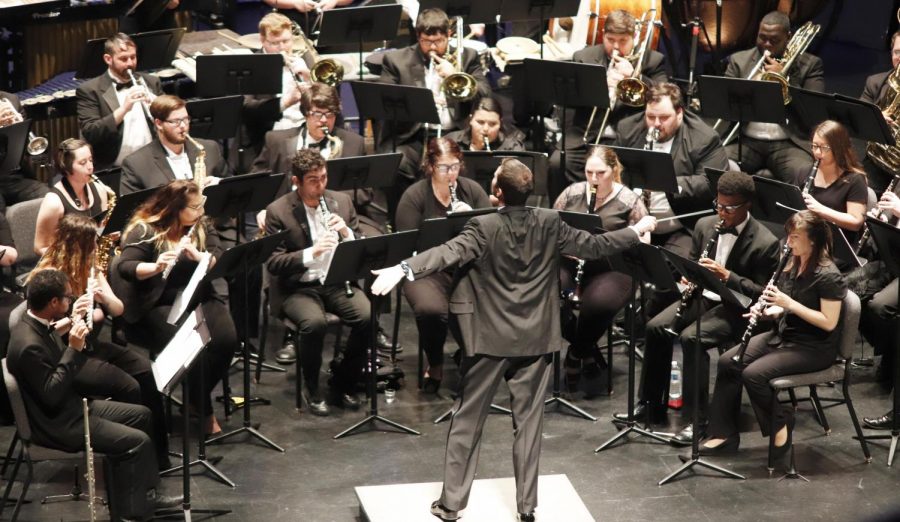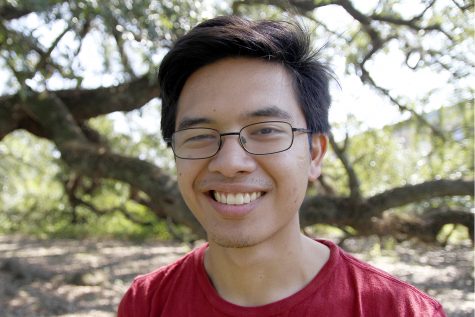A concert brings a theater back to medieval times
Zachary Araki/The Lion’s Roar
Derek Stoughton, conductor of the Wind Symphony, directs the performers in a concert that calls back to the medieval renaissance. The concert was the symphony’s last production of the season.
The Wind Symphony finished its season with a concert that recreated music from the medieval renaissances.
The concert was held at the Columbia Theatre for the Performing Arts on April 17 at 7:30 p.m.
The performance began with some members of the symphony playing among the audience in the balcony.
Derek Stoughton, conductor of the Wind Symphony, said, “it’s based upon music written for the ancient cathedrals of medieval renaissance times, and during that time, performers would often play in balconies and not only balconies but on stages, in churches, all across the hall, so we tried to recreate that – how music would have been played during that time period.”
Stoughton discussed coordination of the performance.
“The music is such that it’s not conducted,” stated Stoughton. “It’s called proportional notation. We actually just give cues a certain number of times, so the players play random figures based upon when I give them certain cues, so the piece is never performed the same.”
For some performers, such as Austin Dugas-Higdon, a senior music major, this was their last production with the Wind Symphony.
“I’ll be always grateful for the experiences that I have gotten with the Southeastern Wind Symphony,” shared Dugas-Higdon. “I’ve ben here for quite a while, much longer than I should have, but the one thing that I can always look forward to every day was Wind Symphony, and I’ll miss it dearly.”
Dugas-Higdon discussed preparation for the concert.
“It was shaky at first because the music’s really hard, but we really pulled it together,” explained Dugas-Higdon. “This was one of those things where the group had to grow in order to play this music correctly, and I think we did that.”
Stoughton described the end of the season as a bittersweet time.
“I love getting to work with these students every day,” said Stoughton. “They bring a lot of joy to my life, but I think we’re all ready for a break. While I’m excited to get some time off to rest and recharge, I’m always sad when I don’t get to work with them.”
Your donation will support The Lion's Roar student journalists at Southeastern Louisiana University.
In addition, your contribution will allow us to cover our annual website hosting costs.
No gift is too small.






